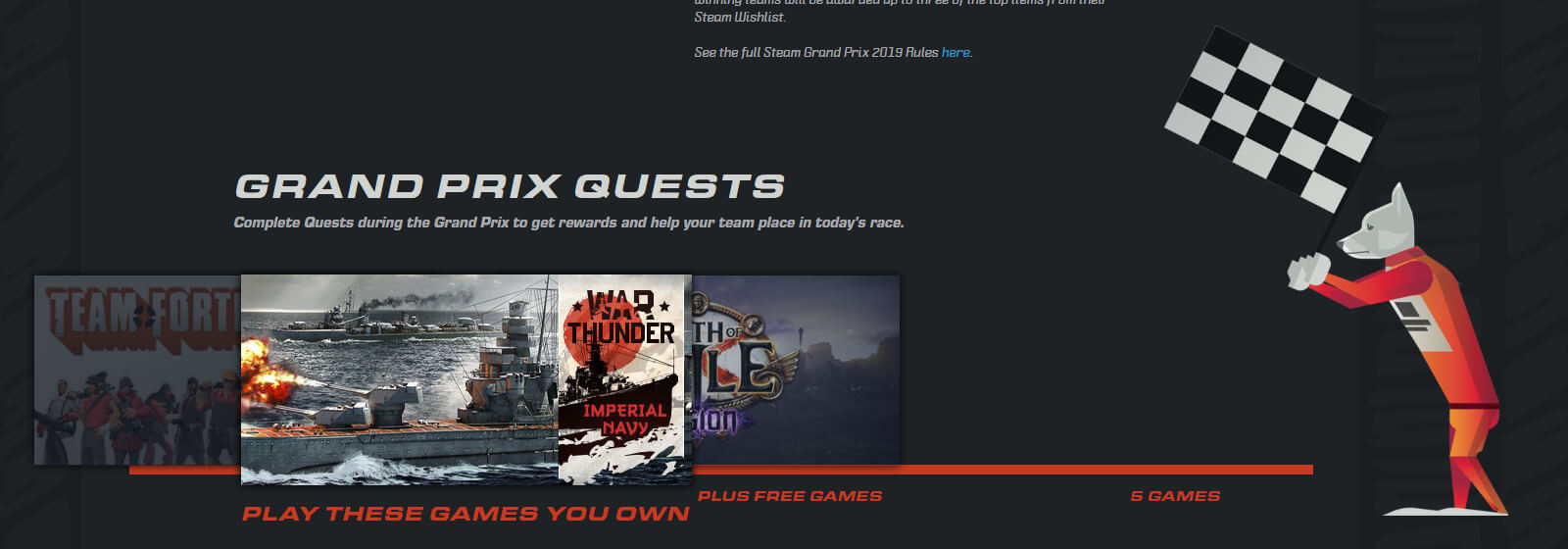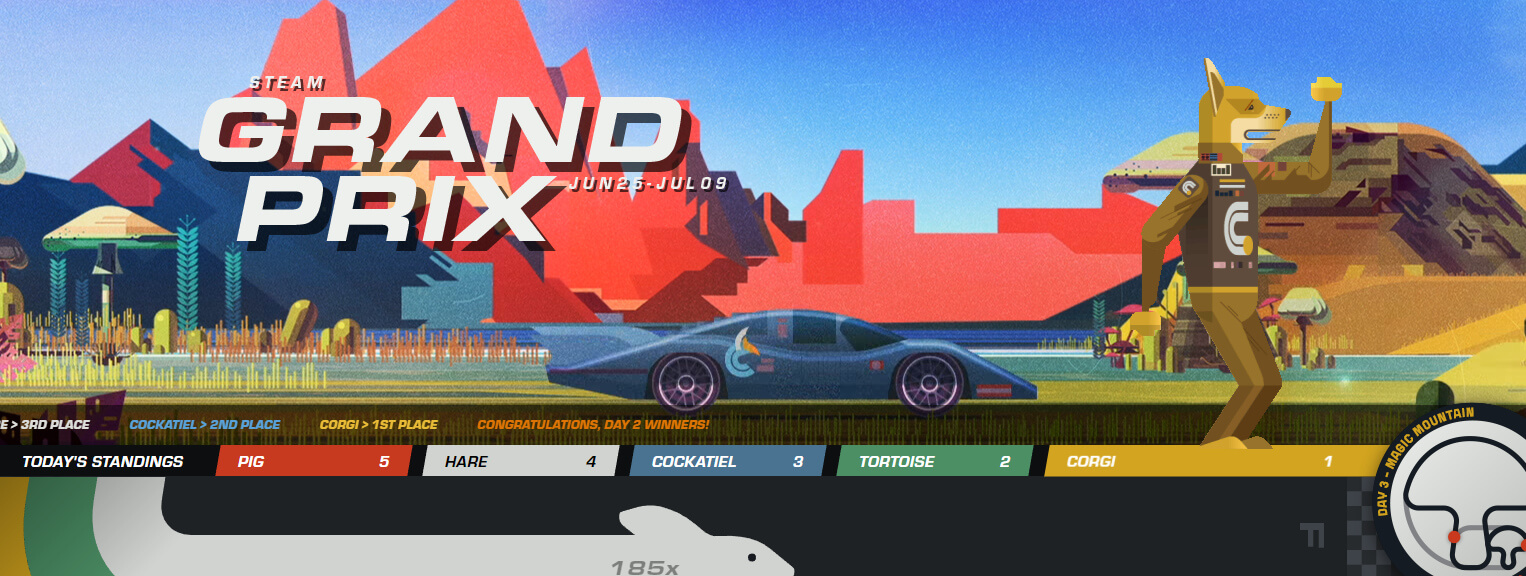Facepalm: It's almost never a good idea to complicate things that should have been simple from the start. Steam's gamification of its Summer Sale with a Grand Prix theme sounds exciting on paper but users' experience on the storefront tells a different story. Particularly indie devs, whose titles in gamers' wishlists have been at the mercy of the Grand Prix's rather confusing rules. Valve has since made some quick pit stop adjustments so that rest of the sale can race on smoothly.
A worried-looking dog appeared on my Steam Grand Prix page. Maybe it also knows of the troubles that Valve's had with its annual Gran Prix-themed Steam Summer Sale. Given the huge library and tons of features built into the gaming store, Steam's given a racing twist to its much anticipated summer sale event in the hope that players remain engaged in all the activities on offer and get a chance to win a free game placed at the top of their wishlist.
Of course, there are many of us who won't care about such fluff and are only there to see if one or more of our wishlist games have gone on discount or to make a few impulsive purchases. But Steam would rather you have some fun browsing through its store and have gamers play a game so they can win titles in a game sale. An idea that hasn't got down all that well, especially as the underpinning rules and systems have been flawed since launch.
Workings of the game have already been explained before, but just to revise; Players join one of the five teams based on cutesy animals that include a Pig, Hare, Cockatiel, Tortoise and a Corgi. Points are earned through performing various activities like unlocking achievements in games already in the library or buying new ones to fill a "Boost Meter" that can then be used to either speed up their driver on the track or by attacking opposing teams to slow them down or steal their progress.
But it seems the rules and game mechanics running behind the scenes have led to some "snowball effects". After all, how can a Corgi with its tiny little legs gain a massive lead over its rivals in the first two days of the race? Unbelievable. There's also the worrying issue of wishlist deletions that have caused headaches for Indie developers as apparently, gamers have removed quite a few titles from their wishlist mistakenly, to comply with Steam's confusing words on the matter.
The rule says that on a daily basis, randomly selected users from the top three teams will be awarded their "most wished for" game on their wishlist, leading gamers to believe that their wishlist just needs to have that game on it and are deleting everything else. What it says further down in smaller print is that to qualify for the criteria, the "most wished for" game needs to be the highest ranked in the list (other games don't need to be deleted), leading many indie devs to have their games skyrocket in wishlist deletions since the start of the sale.
Oof, in Steam's summer sale, they're offering users a chance to win their 'most wished for games'. Lots of users have misinterpreted as 'any game on my wishlist', instead of 'the top game', and are deleting lower priced indie games to make sure they get pricey AAA games instead. pic.twitter.com/xo4Z7cpUgz
--- Tom Vian (@SFBTom) June 27, 2019
Naturally, players have been filtering their list to get a better chance at winning more expensive games, discarding even unreleased indie titles.
Thanks to the Steam summer sale minigame, where can win a free game from your Steam wishlist, @WildfireGame wishlist deletions have skyrocketed
--- Dan Hindes (@dhindes) June 27, 2019
People want to narrow the pool to more expensive games.
Wildfire isn't out. You can't win it as an unreleased game. This is madness. pic.twitter.com/kon3ZPl96X
Valve's has since applied some fixes to the game including team balance improvements and made its wording more clear on the wishlist issue.
"We've heard your feedback about the complexity of the Steam Grand Prix event. We designed something pretty complicated with a whole bunch of numbers and rules and recognize we should've been more clear. We want to apologize for the confusion that this has caused, and also apologize for the broken mechanics that have led to an unbalanced event."

Regarding the wishlist misunderstanding, the company has added that "if your team makes it to the podium and you are randomly chosen to win something off your Steam Wishlist, then we'll grant you the top item. Just move your favorite item to the top of your wishlist and you should be good to go. There's no need to remove other items from your wishlist – keep them there so you'll be notified when those items release or go on sale."
Although Valve's issues aren't feature breaking like Epic's blockage of user accounts, we'd much like the two stores to compete in terms of price and variety, not who can create bigger problems for its customers on eagerly awaited events like annual sales. Also next time, Steam could use a slightly happier looking dog than the one holding the chequered flag.
